Securing a hotel room door with a towel may seem like a simple and unconventional method, but in certain situations, it can serve as a temporary and practical solution to enhance security and peace of mind during travel.
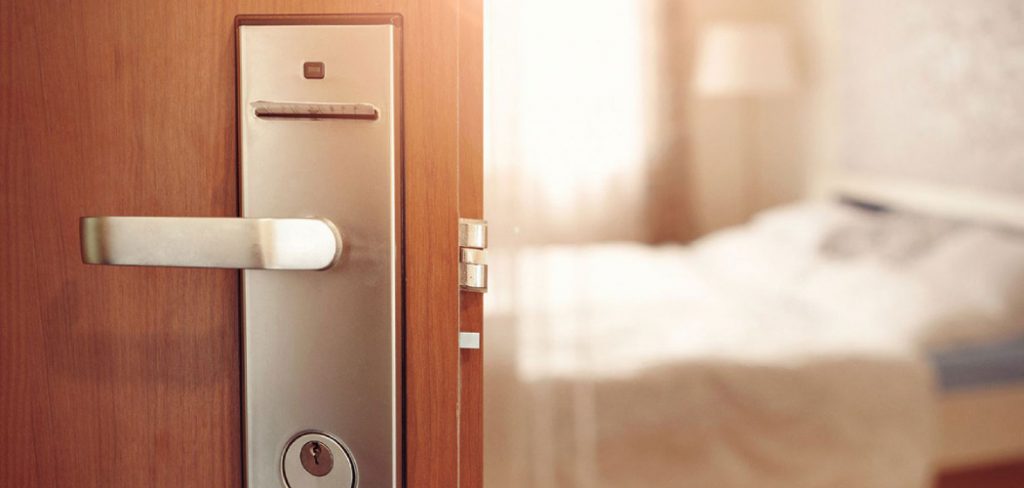
Whether you’re concerned about the reliability of the hotel’s locks or simply want an additional layer of protection against unauthorized entry, using a towel to secure the door can offer reassurance, especially when staying in unfamiliar environments. In this article, we’ll explore how to secure hotel room door with towel, including tips for positioning and wedging the towel to prevent the door from being opened from the outside.
While this method should not replace the hotel’s existing security features, such as locks and deadbolts, it can provide travelers with added security and confidence during their stay.
Importance of Hotel Room Security for Travelers
The importance of hotel room security for travelers cannot be overstated. It stands as a fundamental aspect of ensuring a safe and stress-free travel experience. Whether on a business trip, vacation, or any form of travel, the assurance that personal belongings and privacy are protected is paramount.
Adequate security measures in hotel rooms not only safeguard against theft and intrusion but also contribute to the overall well-being and peace of mind of travelers. This peace of mind allows travelers to relax fully and enjoy their stay, knowing their temporary home away from home is secure.
In today’s world, where security concerns are increasingly prevalent, travelers prioritize hotels that offer robust security measures, illustrating how hotel room security is not just a preference but a necessity.

Potential Risks and Vulnerabilities
While hotels generally provide a safe environment for travelers, there are potential risks and vulnerabilities that one should be aware of. Unsecured or poorly secured hotel room doors can be an attractive target for thieves or intruders looking to exploit any security weaknesses. Such vulnerabilities might include outdated lock systems, doors that don’t close properly, or lack of surveillance in hotel corridors.
In some cases, former guests or maintenance staff could have unauthorized access if key cards are not properly managed or locks are not changed regularly. Additionally, rooms located on lower floors may be more susceptible to break-ins from windows or balconies.
Recognizing these potential risks is the first step in taking proactive measures, such as using a towel to secure the door, to augment the existing security features of a hotel room.
Understanding Hotel Room Door Security
Understanding the basics of hotel room door security is essential for any traveler. Hotel doors are usually equipped with several security features designed to protect guests, including electronic card locks, deadbolts, security chains, and peepholes.
Electronic card locks are favored in modern hotels for their ability to be reprogrammed for each new guest, reducing the risk of unauthorized access. Deadbolts offer an additional layer of security, allowing guests to secure their door from the inside. Security chains or latches provide a means to partially open the door to communicate with someone outside while still maintaining a barrier.
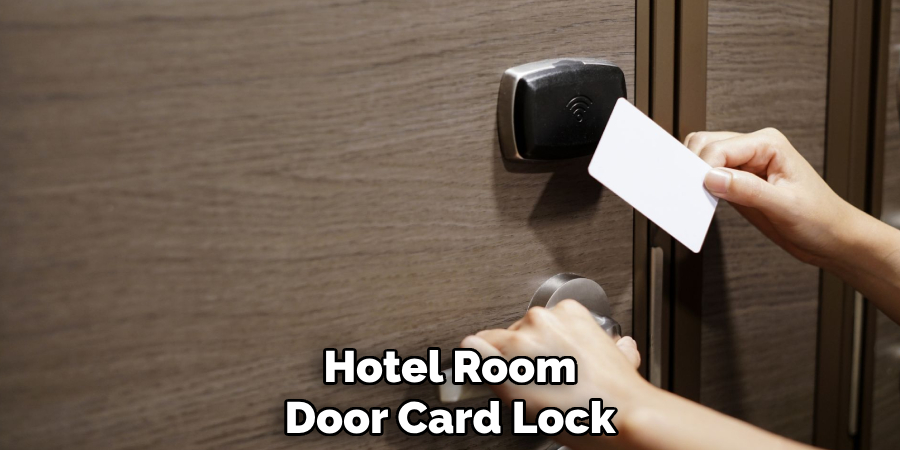
Peepholes allow occupants to see who is outside their door without opening it. Each of these security features plays a crucial role in safeguarding guests, and understanding how they work together can help travelers ensure they are fully utilizing the protective measures available to them. However, even with these precautions in place, there may be scenarios where additional measures, like the towel technique, are sought for an extra peace of mind.
Common Types of Hotel Room Door Locks and Their Vulnerabilities
Hotel room door locks come in various types, each with its unique operational mechanisms and potential vulnerabilities. Understanding these can help travelers identify possible security gaps and take necessary precautions.
- Traditional Key Locks: Once widespread, these locks are now less common in modern hotels. They can be vulnerable to picking and bumping, where a special key is used to unlock the door without the original key. Due to wear and tear, these locks may also fail to provide a secure fit over time.
- Electronic Card Locks: These are the standard in most contemporary hotels. They use a key card rather than a traditional key, offering better control over who has access. However, they’re not without flaws. Electronic locks can be subject to hacking, where unauthorized individuals exploit weaknesses in the lock’s software to gain entry. Additionally, if the magnetic stripe on a key card gets demagnetized, it can disable access, potentially compromising security if multiple attempts to open the door signal to others that the room is unsecured.
- Smart Locks: The latest in hotel door security, smart locks may include features like keyless entry through a smartphone app. While offering convenience and improved security through customizable access codes and the ability to track entry and exit, they are also susceptible to technical glitches and hacking. Sophisticated cyber-attacks can breach these systems, allowing intruders to unlock the doors remotely.
- Deadbolts and Security Chains: Though not the primary lock, these are supplementary security features. Deadbolts offer an extra layer of protection but can be bypassed if the door frame is not sturdy or well-installed. Security chains, or latches, allow the door to be opened slightly to see outside but can be forced open with enough pressure.
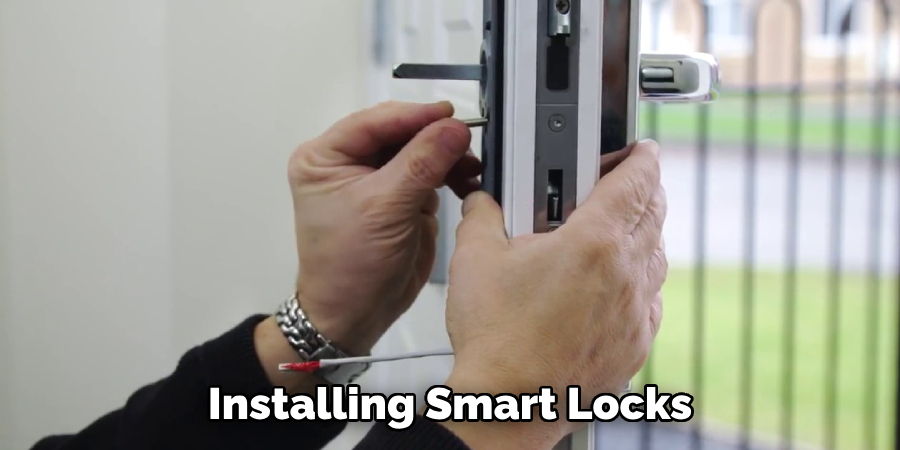
Awareness of these lock types and their potential vulnerabilities enables travelers to assess the security of their hotel room more effectively. This knowledge, coupled with additional security measures like using a towel to secure the door, can significantly enhance protection against unauthorized entry.
Risks Associated with Unauthorized Entry and Theft
Unauthorized entry into hotel rooms presents a multifaceted risk to travelers, extending beyond the immediate loss of personal belongings. The invasion of privacy and personal space can leave guests feeling violated, significantly impacting their sense of security and overall well-being during their stay.
These experiences may lead to heightened stress and anxiety, detracting from the enjoyment of their travel and lodging experience. Furthermore, theft of sensitive documents or electronic devices can result in identity theft and financial fraud, posing long-term challenges well beyond the trip itself.
In the context of business travelers, the unauthorized access and potential theft of proprietary information or company-owned devices could have ramifications for competitive positioning and data security. The aftermath of such incidents often necessitates a comprehensive response, including police reports, insurance claims, and in some cases, credit monitoring, to mitigate the consequences of the breach.
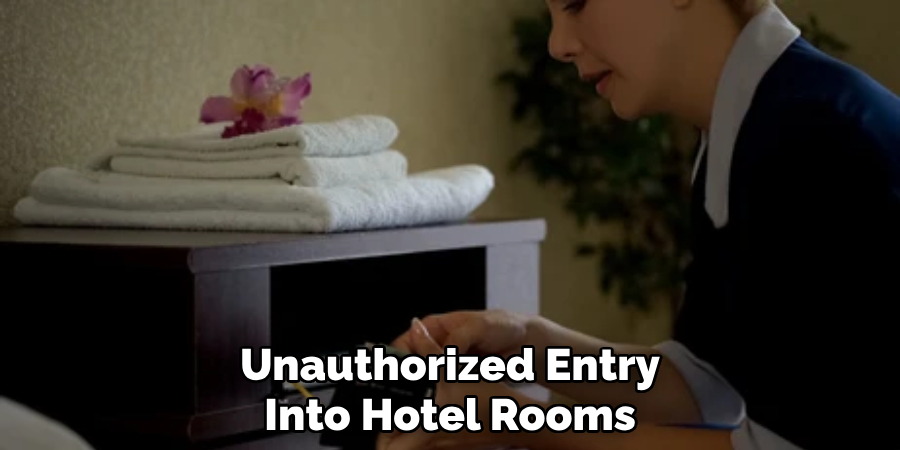
This underscores the importance for both travelers and hotels to implement and adhere to robust security measures, ensuring a safe and secure environment that protects against the risks of unauthorized entry and theft.
Importance of Taking Proactive Measures
Given the array of potential vulnerabilities associated with hotel room security, the importance of taking proactive measures by travelers cannot be overstated. Being proactive involves not just utilizing the existing security features provided by the hotel, but also adopting additional strategies and tools to fortify the room against unauthorized entry.
For instance, carrying a portable door lock or security device can offer an extra layer of defense, particularly in situations where the provided locks are insufficient or compromised. Additionally, travelers can enhance their security by maintaining a low profile, avoiding the display of valuables or information that may attract unwanted attention, and ensuring their room appears occupied even when they are out.
Engaging in digital security practices, such as using secure WiFi connections and safeguarding sensitive information, also plays a crucial role in preventing data theft or cyber intrusions that could lead to physical vulnerabilities. By taking these proactive steps, travelers not only secure their personal belongings and sensitive information but also safeguard their peace of mind, ensuring a more enjoyable and stress-free stay.
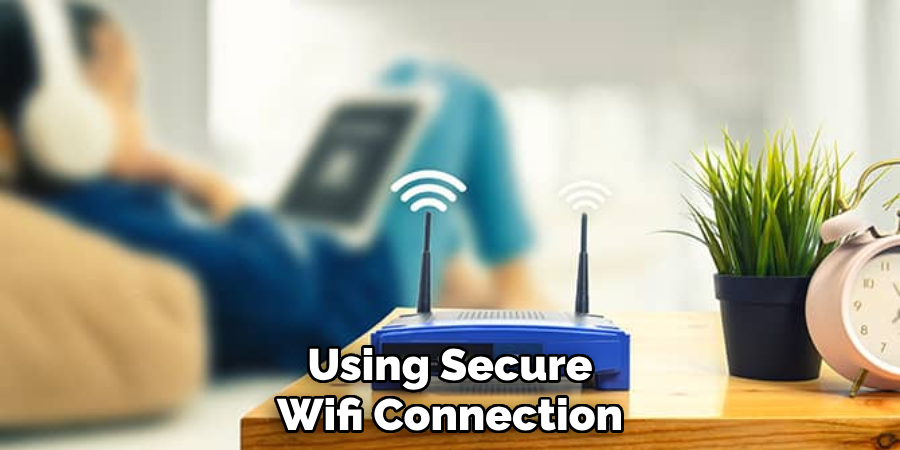
Adopting a proactive mindset towards personal and digital security in hotel stays is a critical aspect of modern travel, empowering individuals to protect themselves in an increasingly complex and interconnected world.
Factors to Consider When Evaluating Hotel Room Security
When evaluating the security of a hotel room, several key factors should be taken into account to ensure a safe and secure stay. These factors include:
- Lock Type and Condition: Assess the type of locks used on the door and their condition. Advanced locks such as electronic or smart locks generally offer better security compared to traditional key locks. Ensure that locks are in good working order and show no signs of tampering.
- Secondary Security Features: Check for the presence of secondary security features such as deadbolts, security chains, or peepholes. These additional layers of security can offer extra protection and peace of mind.
- Door and Frame Integrity: The strength and integrity of the door and its frame are crucial. A solid door with a strong frame can significantly enhance room security by resisting forced entry.
- Surveillance and Lighting: Consider the hotel’s use of surveillance cameras and adequate lighting around entry points and hallways. Well-lit areas and the presence of cameras can deter potential intruders and help ensure guest safety.
- Safety Protocols and Staff Vigilance: Evaluate the hotel’s safety protocols and the vigilance of its staff regarding security. Hotels that prioritize guest safety will have clear procedures in place for emergency situations and staff trained to be attentive to security concerns.
- Guest Reviews and Reputation: Researching guest reviews and the hotel’s reputation can provide insights into past security incidents or concerns. Reputable hotels are likely to have fewer complaints related to security breaches or theft.
- Location Security: The location and surrounding environment of the hotel can influence room security. Hotels in safe, low-crime areas are generally safer, but it’s important to remain vigilant regardless of the location.
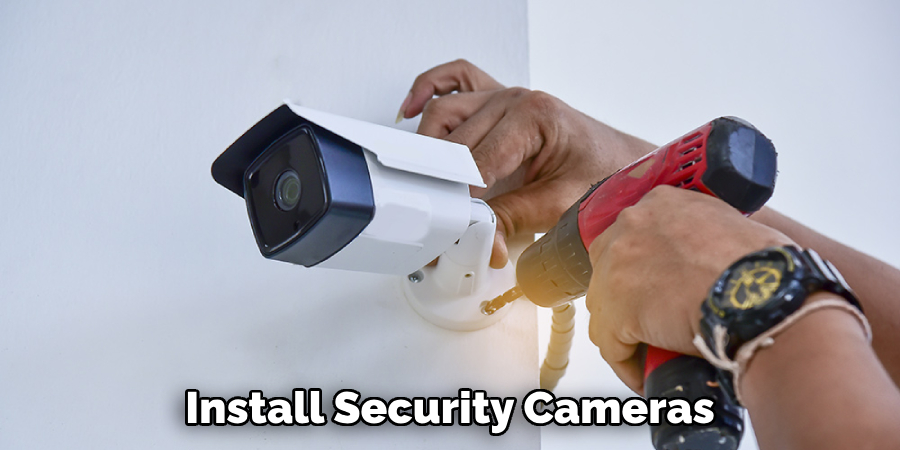
By carefully considering these factors, travelers can make informed decisions about their accommodations and take appropriate measures to enhance their personal security during their stay.
10 Methods How to Secure Hotel Room Door with Towel
1.Assess the Door’s Security:
Before implementing any security measures, assess the door’s existing security features. Check the quality of the lock, the strength of the door, and any vulnerabilities that may exist. Understanding the door’s weaknesses will help you determine the best way to reinforce it.
2.Understanding the Towel Method:
The towel method involves placing a thick towel or cloth at the base of the door to prevent it from being opened from the outside. The towel creates friction between the door and the floor, making it difficult for anyone to push the door open.
3.Choose the Right Towel:
Select a thick and sturdy towel or cloth that can effectively create resistance against the door. A bath towel or beach towel is ideal for this purpose as they are usually thick and absorbent. Avoid using thin or lightweight towels that may not provide sufficient resistance.
4.Fold the Towel Properly:
Fold the towel lengthwise several times to increase its thickness and create a sturdy barrier. The folded towel should be thick enough to wedge tightly against the bottom of the door and prevent it from being opened easily.
5.Position the Towel Correctly:
Place the folded towel horizontally across the width of the door, ensuring that it covers the entire gap between the door and the floor. Position the towel tightly against the base of the door to create a snug fit and maximize resistance.
6.Secure the Towel in Place:
To prevent the towel from slipping or being easily dislodged, secure it in place using additional items such as heavy luggage or furniture. Place these items against the base of the door to hold the towel firmly in position and add weight to reinforce the barrier.
7.Use Door Stoppers or Wedges:
Place door stoppers or wedges under the door to further prevent it from being pushed open. Wedge-shaped door stoppers are designed to grip the floor and create resistance when pressure is applied to the door. This provides an additional layer of security in conjunction with the towel.
8.Notify Hotel Staff:
Inform the hotel staff of your security concerns and the measures you’ve taken to secure the door. They may be able to provide additional assistance or offer alternative solutions. Hotel staff are trained to address guest safety concerns and can help ensure your peace of mind during your stay.
9.Stay Alert and Vigilant:
Remain vigilant and aware of your surroundings while staying in a hotel. Report any suspicious activity or individuals to hotel staff immediately. Trust your instincts and take proactive measures to ensure your safety and security throughout your stay.
10.Consider Alternative Security Measures:
If the towel method doesn’t provide sufficient security or if you’re uncomfortable with it, consider alternative security measures. Look into commercial door security products designed for travelers, such as portable door alarms, door braces, or door jammers. These products offer additional peace of mind and can enhance the security of your hotel room.
Things to Consider When Implementing Hotel Room Security Measures
When implementing security measures in a hotel room, it’s essential to keep several considerations in mind to ensure both the effectiveness of the security enhancements and your comfort during the stay.
Firstly, understand the hotel’s policies regarding guest modifications to rooms. Adding security measures should not violate these policies or cause damage to the hotel property. Secondly, balance security with emergency egress considerations.

Any additional security measure should not impede your ability to exit the room quickly in case of an emergency. Thirdly, maintain a discreet approach to your security measures. Overly visible or elaborate security setups may draw unwanted attention to your room. Lastly, while it’s important to feel secure, remember to also focus on enjoying your travel experience.
Excessive worry over room security can detract from the enjoyment of your stay. Always assess the environment and adjust your security measures accordingly, relying on the hotel’s built-in security features as your primary line of defense. Additionally, staying aware of your surroundings and taking appropriate precautions can help ensure a safe and worry-free stay at any hotel.
So, it’s always better to take preventive measures rather than facing potential security threats during your travels. Always do proper research on the hotel before booking, understand their security procedures and policies, and consider implementing additional measures for your own peace of mind.
Remember that your safety is a top priority, and taking precautions can help ensure a comfortable and secure stay at any hotel.
Conclusion
In conclusion, while using a towel to secure a hotel room door may seem like a simple and makeshift solution, it can offer travelers an additional layer of security and peace of mind during their stay.
By following the tips outlined in this article, such as wedging the towel securely under the door to prevent unauthorized entry, travelers can take proactive steps to enhance their safety in unfamiliar environments. However, it’s important to remember that this method should complement, not replace, the existing security measures provided by the hotel, such as locks and deadbolts.
Thanks for reading, and we hope this has given you some inspiration on how to secure hotel room door with towel!
About
Safety Fic is a distinguished figure in the world of Diy design, with a decade of expertise creating innovative and sustainable Diy solutions. His professional focus lies in merging traditional craftsmanship with modern manufacturing techniques, fostering designs that are both practical and environmentally conscious. As the author of diy, Safety Fic delves into the art and science of Safety Fic-making, inspiring artisans and industry professionals alike.
Education RMIT University
(Melbourne, Australia) Associate Degree in Design (Safety Fic) Focus on sustainable design, industry-driven projects, and practical craftsmanship. Gained hands-on experience with traditional and digital manufacturing tools, such as CAD and CNC software.
Nottingham Trent University
(United Kingdom) Bachelor’s in diyfastly.com and Product Design (Honors) Specialized in product design with a focus on blending creativity with production techniques. Participated in industry projects, working with companies like John Lewis and Vitsoe to gain real-world insights.
Publications and Impact
In diy, Safety Fic his insights on indoor design processes, materials, and strategies for efficient production. His writing bridges the gap between artisan knowledge and modern industry needs, making it a must-read for both budding designers and seasoned professionals.
